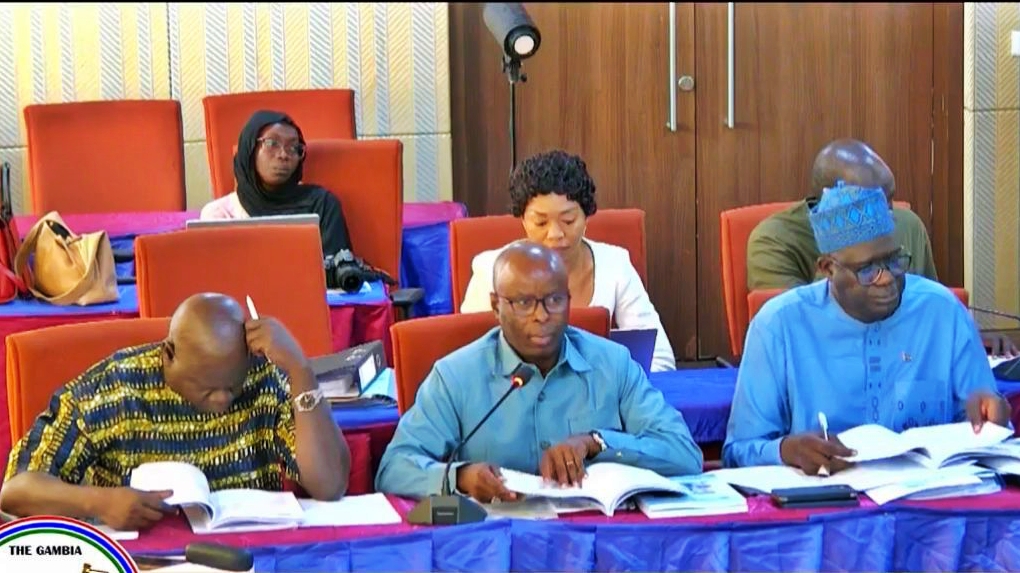Gambiaj.com – (BANJUL, The Gambia) – In an interview with Peter Gomez on West Coast Radio’s Coffee Time Show, Abdoulie Jammeh, the Deputy Permanent Secretary at the Trade Ministry, on Wednesday provided an explanation of the recent agreement between the Gambia Bakers Union and the Ministry of Trade, Industry, Regional Integration, and Employment to halt a planned price increase on bread.
According to Jammeh, while the price of flour and other essential materials has been fluctuating, the government had previously introduced measures to stabilize the market and keep the cost of bread at D10 per loaf. However, the recent expiration of these interventions has placed renewed pressure on bakers.
“The price of flour has been changing over the years. Since 2019, bread has remained at D10, despite increases in the cost of wheat, fuel, and other inputs. This was made possible through government interventions, such as allowing bakeries to import premium flour to mix with locally produced flour,” Jammeh explained.
The government had also engaged local flour mills, ensuring they stocked supplies for up to six months at a time to mitigate frequent price fluctuations. Additionally, during the COVID-19 pandemic and the Russia-Ukraine war, the government took steps to absorb certain costs by waiving some charges on flour mills. These measures, according to Jammeh, helped stabilize bread prices.
However, with these interventions ending, bakers are now dealing with the full brunt of rising costs.
As a result, many bakeries are facing pressure to increase the price of bread in order to cover their expenses. Some bakers have expressed concerns that raising prices could lead to a decrease in sales, as consumers may opt for cheaper alternatives.
Others clearly considered cutting costs by using lower-quality ingredients, which could impact the taste and overall quality of their products.
Government Loosens on Miller’s Protection, Allows Bakers Import Premium Flour
The Gambia Bakers Union, which recently reorganized itself into a broader representative body, initially announced an increase in the price of a loaf from D10 to D13, citing the higher cost of flour and other baking materials.
The move was set to take effect on Monday, but after discussions with the Trade Ministry, the planned increase has been put on hold pending further consultations.
The suspension of the price hike, however, led to an unexpected bread shortage in the Greater Banjul Area from Monday through Tuesday, as many bakeries ceased production due to uncertainty over pricing. Some consumers reported continued difficulty in obtaining bread as of Wednesday morning.
Jammeh acknowledged that bakers have valid concerns regarding the cost of inputs and the quality of locally produced flour, which they claim is of lower quality compared to imported premium flour.
Some bakers claim that the poor quality of Gambian flour only allows for the baking of roughly 390 loaves from each bag. Where premium flour is the norm in countries like Senegal, a single bag can yield up to 690 loaves.
To fix this problem, Abdoulie Jammeh revealed to Peter Gomez that an MOU is being finalized between the government and the Bakers Union to ensure sustainable import and pricing while maintaining quality standards.
Under the proposed agreement, bakers would be allowed to import 3,000 tons of premium flour monthly to mix with locally produced flour. “We have engaged the Gambia Standards Bureau to monitor flour quality, ensuring that it meets national standards,” Jammeh said.
“The objective is to strike a balance between affordability and quality while keeping the industry viable,” he added.
The government and the Bakers Union have committed to continued dialogue to prevent sudden price hikes and supply disruptions. Meanwhile, consumers remain anxious about the availability and affordability of the staple food, as negotiations continue.










